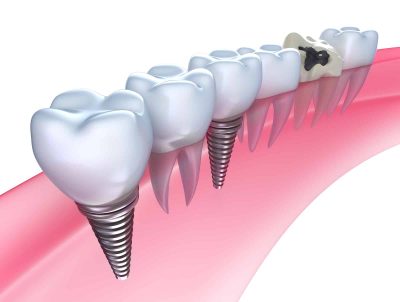What Is Tooth Decay And How Does It Develop?

Every time you eat food you up the chances of tooth decay. This is a common problem which occurs when the outer layers of your teeth begin to dissolve from acids in the food you’ve eaten. Instances of tooth decay have become less common because of good public awareness of its consequences. Nevertheless, 33% of adults are susceptible to tooth decay during their lifetime, along with one in four kids under the age of five who are also prone to develop this condition.
Whether you are dining in at home or going out, each meal is an opportunity to make better choices for your oral health. Unhealthy foods breed bacteria, which, in turn, combines with the saliva in your mouth to form plaque. Bacteria in plaque itself converts carbohydrates into energy which then also produces acid as well.
Brushing your teeth regularly will help in removing most of the plaque. However, if it continues to build up the plaque will begin to damage the surface of the tooth. Initially, the plaque will soften the enamel by removing the essential minerals on the tooth surface. Thereafter it will begin to make small holes, better known as cavities, leading to toothaches eventually. Tooth decay begins to appear at the back of your mouth, on the molars and premolars. Even before you begin to realize it, the cavity has developed and it is too late for the original tooth to be fixed.
What Are The Types of Tooth Decay Treatments?
The degree of decay will determine what treatment you will be given. If the decay is in its initial stages you will be prescribed professional strength fluoride by your dentist to prevent the teeth from deteriorating further. If the decay has wasted the enamel entirely and created a cavity the dentist will use professional equipment to remove the soft decay and fill in the lost part of the tooth. If nerve damage is observed, more advanced treatment, such as a root canal, may be required. This will ensure that the damaged nerve is removed or is provided the time needed to heal naturally before restoring the tooth with the help of a filling or a crown. A tooth that cannot be restored or repaired will need to be removed immediately.
How Can Tooth Decay Be Avoided?
Keeping your oral hygiene in excellent shape is the best way to prevent tooth decay. This includes brushing, flossing, and rinsing your teeth at least a couple of times every day. The Brushing for  a minimum of three minutes in the morning and at night will help to remove any plaque on the surface of the tooth. Flossing is also essential for maintaining clean teeth. It can remove plaque and particles of food that are difficult to reach or impossible to eliminate with a toothbrush. Alcohol-free mouthwash which contains fluoride is also helpful for avoiding tooth decay. However, mouthwash should be used at different times of the day, such as after lunchtime or in the evening, when you can avoid eating or drinking for at least 30 minutes after rinsing with a mouthwash.
a minimum of three minutes in the morning and at night will help to remove any plaque on the surface of the tooth. Flossing is also essential for maintaining clean teeth. It can remove plaque and particles of food that are difficult to reach or impossible to eliminate with a toothbrush. Alcohol-free mouthwash which contains fluoride is also helpful for avoiding tooth decay. However, mouthwash should be used at different times of the day, such as after lunchtime or in the evening, when you can avoid eating or drinking for at least 30 minutes after rinsing with a mouthwash.
Remaining conscious of your diet is also imperative to good health. When you limit your intake of sugar and unhealthy foods the chances of developing tooth decay diminish significantly. You can certainly have sugary foods or drinks on occasions but never with every meal. Additionally, you will also find it helpful to plan your menus and shop accordingly. Organic foods are beneficial for your teeth because it is produced without using any pesticides.
If your tooth has been infected, its root can be taken out and the tooth can still be saved. Read more about Root Canal Therapy here. Feel free to reach out to us for any questions about your particular situation.
Additionally, it’s important to see your dentist for regular checkups and cleanings.
See more about: Is Root Canal Therapy safe while I am pregnant?
